

Past Event
Content from the Brookings Institution India Center is now archived. After seven years of an impactful partnership, as of September 11, 2020, Brookings India is now the Centre for Social and Economic Progress, an independent public policy institution based in India.
More Videos
Key Highlights:
In anticipation of the 3rd India-Africa Forum Summit to be held in New Delhi 26-29 October 2015, Brookings India in collaboration with RIS, Institute of Defence Studies and Analysis (IDSA), and Confederation of Indian Industry (CII) jointly hosted a day-long conference to facilitate engagement on various dimensions of the India-Africa relationship. The objective of the conference was to lay the foundation for structured engagement between India and Africa on broad areas of trade and investment, technology, capacity building, infrastructure and geostrategic interests.
The day-long conference started with special remarks by Ambassador Sujata Mehta, Secretary (M&ER), Ministry of External Affairs and keynote address delivered by H.E. Dr. Genet Zewide, Ambassador of Federal Democratic Republic of Ethiopia and Dean of African Diplomatic Corps. The two guests of honor also released three publications – ‘India and Africa: Forging a Strategic Partnership’; ‘India-Africa Partnership Towards Sustainable Development’; and ‘India and Africa: Common Security Challenges for the Next Decade’- published by Brookings India, RIS and IDSA respectively.
The subsequent three panels revolved around the themes of geo-strategic linkages between India and Africa, trade and investment opportunities, and sectoral perspectives on the Indo-Africa partnership. The valedictory address was delivered by Ambassador Navtej Singh Sarna, Secretary (West), Ministry of External Affairs.
Africa is a continent of paradoxes with 34 of the least developed countries and six of the fastest growing economies in the world, the panel discussed. India is Africa’s third largest trading partner with over $70 billion in trade, and over $30 billion in investment. Therefore, trade and investment is a critical dimension of the India-Africa relationship. Until recently, India’s trade orientation was focused mostly toward the West: United States and European Union. But with the inevitable Indian economic slowdown in the next few years, India will need to look for consumers with similar patterns of consumption as ours. This is where Africa becomes a desirable market.
The panel discussed how from an African perspective, energy and raw materials were key components which India would be a keen importer of, especially with India’s growing needs for energy. Africa has benefitted tremendously from India’s Duty Free Tariff Preference for Least Developed Countries (DFTP-LDC) scheme. However, due to lack of logistics and poor infrastructure, many African countries have been unable to take full advantage of its benefits.
Trade and investment opportunities between India and African countries are immense, especially with the changing demographics and growing urban populations. In order to achieve the target of $120 billion in trade and investment by the 2020, there needs to be a simplification of bilateral processes and tax regimes. Institutions such as the African Development Bank can play an increasing role in facilitating the co-operation. Projects such as SITA can support in fostering cooperation between Indian businessmen with African opportunities.
There is also immense potential for India to be a reliable partner in development of sectoral infrastructure within Africa primarily in the energy, sustainable agriculture, health, telecommunications and education sectors. There can be potential for synergy between India and African countries in areas of energy technology, supercritical and advanced coal technologies, nuclear power, micro–grids and smart-grids, and agriculture related energy for lifting water, cold storage etc. India’s solar programmes and hydropower, micro-hydel programs could also be very relevant for Africa. Engaging with the Indian model in the long-term could enable Africa to benefit from an open technology platform and foster local innovation. Sustainable agricultural development is also pivotal for Africa as the demand for agricultural produce in expected to go up by a 100% by 2050. The way forward is to ensure that agriculture is science based and technology driven and peasant agriculture transforms to give way to agriculture business.
In terms of higher education, there is ample scope for a mutually beneficial partnership between India and Africa. However, for an effective partnership, the Indian higher education system must first offer incentives for African students in India in the form of a separate accreditation system, create channels to inform African students about Indian universities, offer hands-on experience for African students in Indian companies and take measures to narrow the cultural divide between African and Indian students.
For an effective trade, investment and development partnership, there needs to be enough awareness among Indian investors about the diverse nature of African countries. In order to succeed, Indian companies must understand that each African country is different and has different needs and expectations. India’s relationship with Africa is based on a common future with similar demographics and economic opportunities. By overcoming the hurdles faced by both Indian investors in Africa and African investors in India, both India and Africa can strengthen their trade and investment ties.
With increasing economic importance of the African continent, the geo-political linkages between India and Africa are becoming even more imperative. Ensuring peace, security and internal stability are the key to economic investment and growth. In that sense, Africa is no more a continent on the margins of Indian security interests, but very much a focus in its long-term strategic plan. India has had a long engagement with Africa in terms of peacekeeping, dating back to the UN Operation of Congo in 1960. India currently deploys about 4,500 peacekeepers in several African countries like South Sudan and Congo. Indian peacekeeping mainly stems from its support for African initiatives for peace and security. However, India peacekeeping has not always been considered in a positive light by African countries and there is a need to counter this perception. While peacekeeping forms an important aspect of Indian engagement in Africa, there is perhaps a need to reform peacekeeping and move towards peacebuilding.
Meanwhile, Indian bilateral defence cooperation has largely played out in the form of combating piracy off the coast of Somalia in the last few decades.While combating piracy remains an important issue, there is a need to now shift the focus of security cooperation from piracy, which is largely under control, to ensuring security on both the eastern and western coastlines of Africa. To this end, the IBSAMAR exercises conducted by the navies of India, South Africa and Brazil are fast becoming the flagship initiative of the Indian security establishment. Indian military institutions also provide training to officers from countries like Mozambique, Seychelles, South Africa and Tanzania. However, these defence partnerships are largely ad hoc in nature and lack a well-planned strategic outlook. It is a common allegation that India’s security aspirations in Africa are largely a reaction to China’s increasing influence in the region. Upgradingthe India-Africa partnership to a strategic dialogue level might assuage some of these concerns and ensure long-term cooperation in security and strategic matters. The security establishments of India and Africa also need to establish adequate policy tools to engage with the different security communities in Africa so as to ensure secure maritime systems and encourage blue powers.
In conclusion, ‘chaos, conflict and crises’ continue to color the Indian public’s perception of Africa. The message of ‘resurgence, renewal, renaissance’ of Africa must be more effectively broadcasted to transform this perception. The India Africa Forum Summit will hopefully result in the creation of a commonand integrated intellectual analytical platform where a broad spectrum of issues in the India-Africa relationship can be discussed in a targeted manner.
Stuti Gaikwad contributed to this report.
Download the Brookings India briefing book ‘India Africa: Forging a Strategic Partnership’
Event Announcement
The 3rd India-Africa Forum Summit is scheduled to be held in New Delhi from 26 to 30 October 2015 with all 54 heads of African nations having been invited for the summit. This is being touted as the most significant diplomatic outreach by the Narendra Modi government, underlining the importance of Africa in India’s growth trajectory. Africa is increasingly critical for Indian economic and geo-strategic interests in terms of security, development, trade and investment as well as energy and other resources. Africa can also be an important actor in shaping global norms and institutions, furthering the Indian agenda on that front. The Indian-African relationship therefore presents immense opportunities for exploring cooperative strategies for mutual growth.
To facilitate engagement on the various dimensions of this India-Africa relationship, Brookings India in collaboration with RIS, Institute of Defence Studies and Analysis (IDSA), and Confederation of Indian Industry (CII), is jointly hosting a day-long conference on October 20, 2015 to deliberate on the geo-strategic, economic and development aspects of this relationship.
Event Agenda: Link
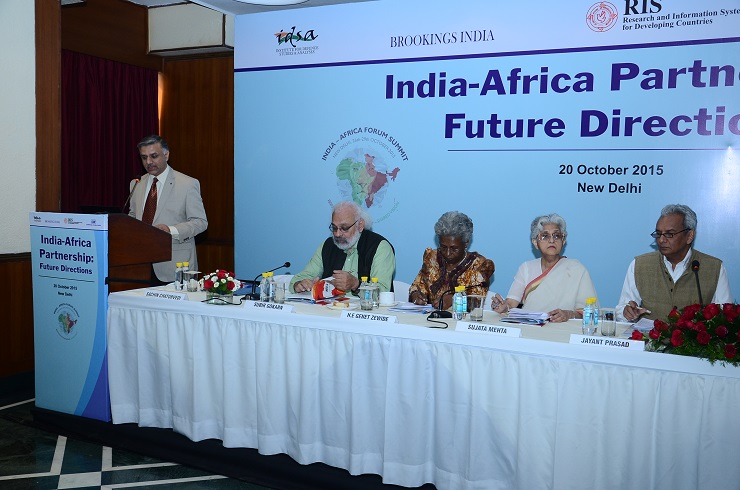
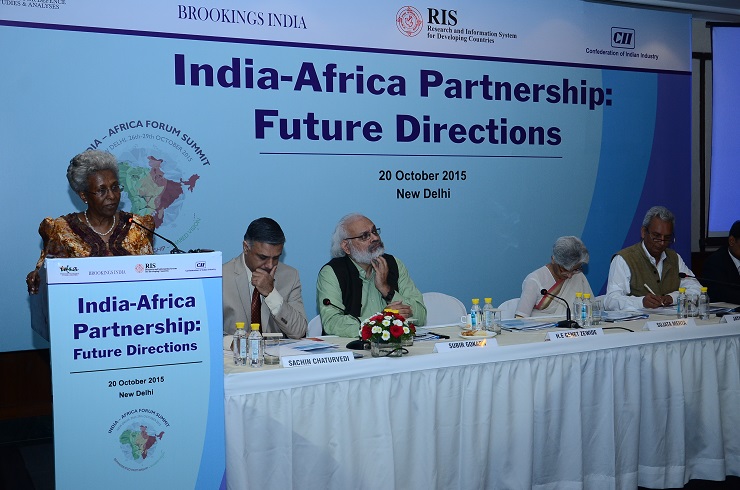
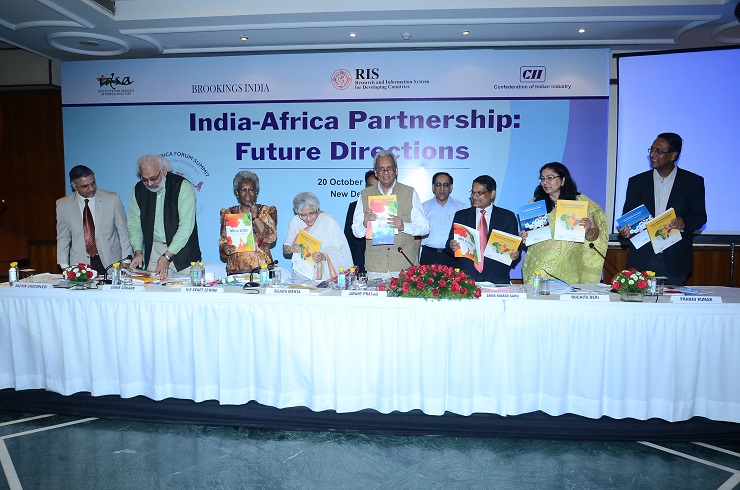
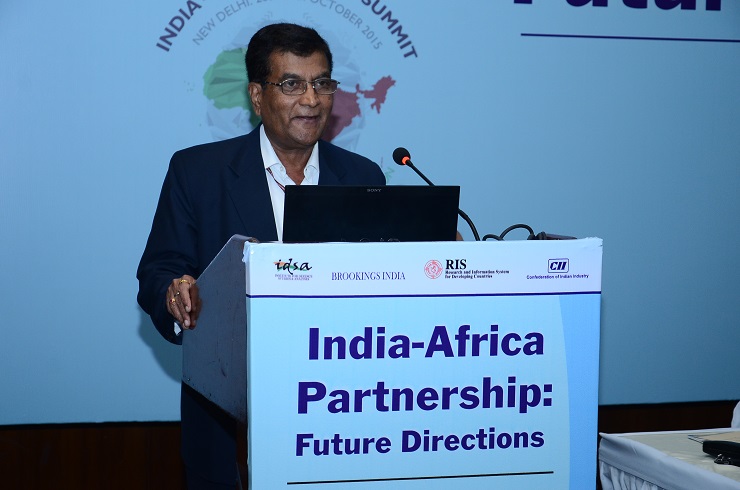

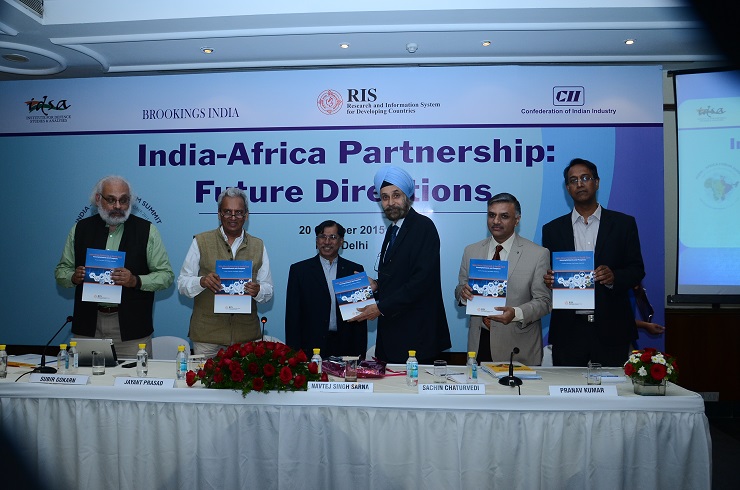
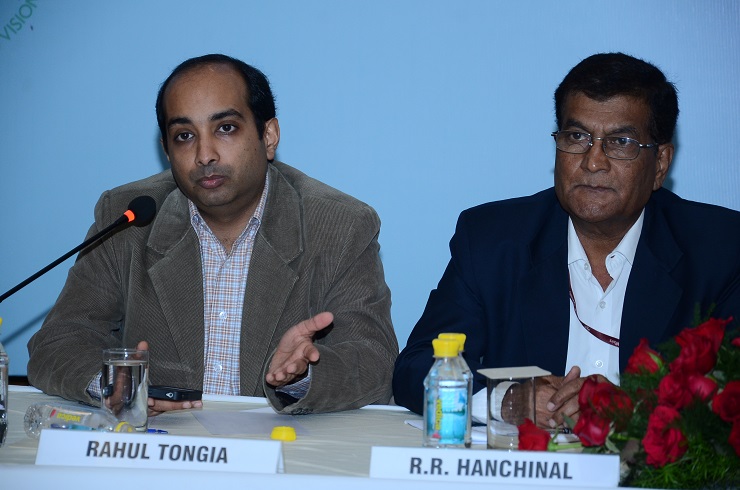
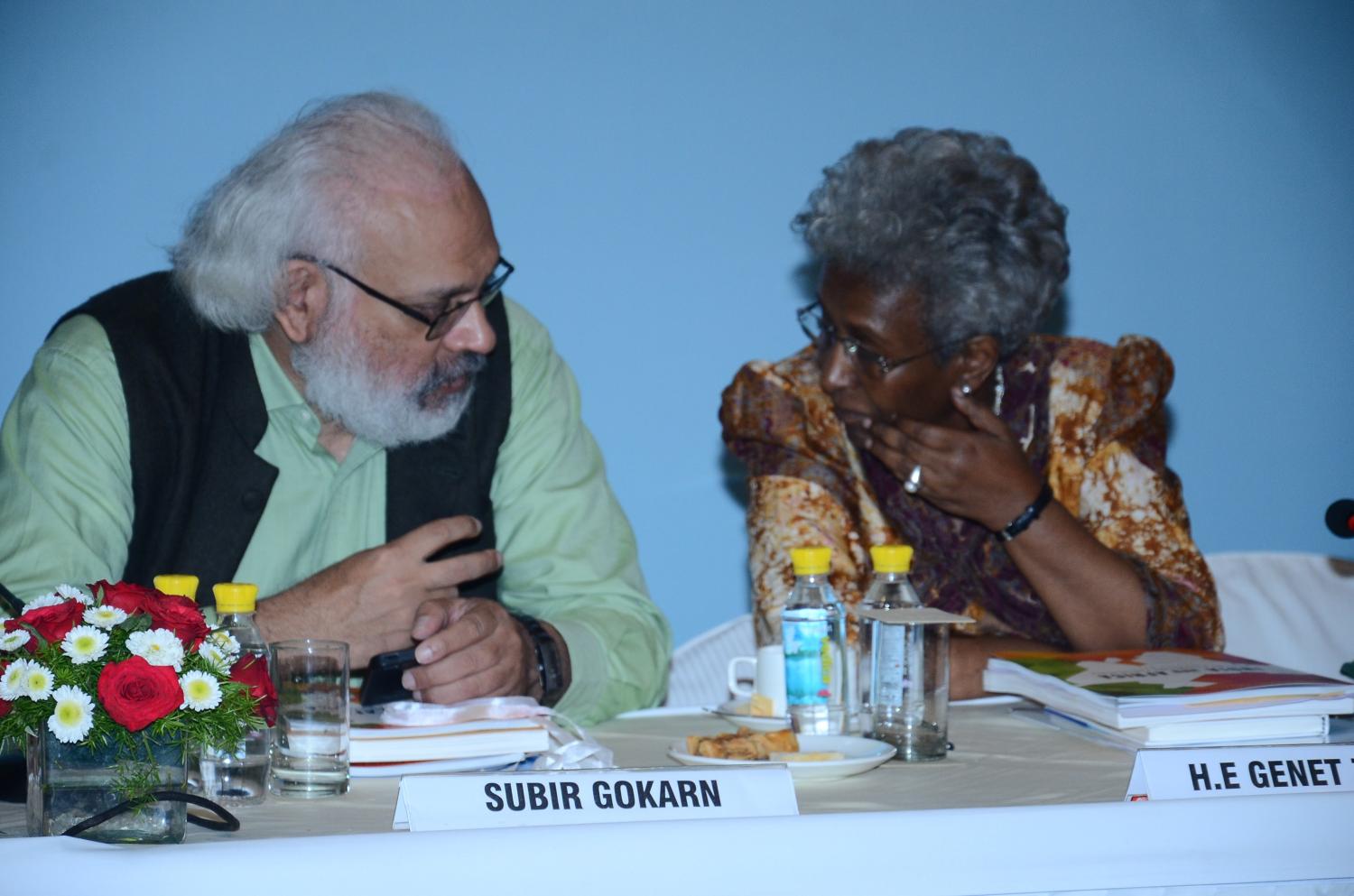
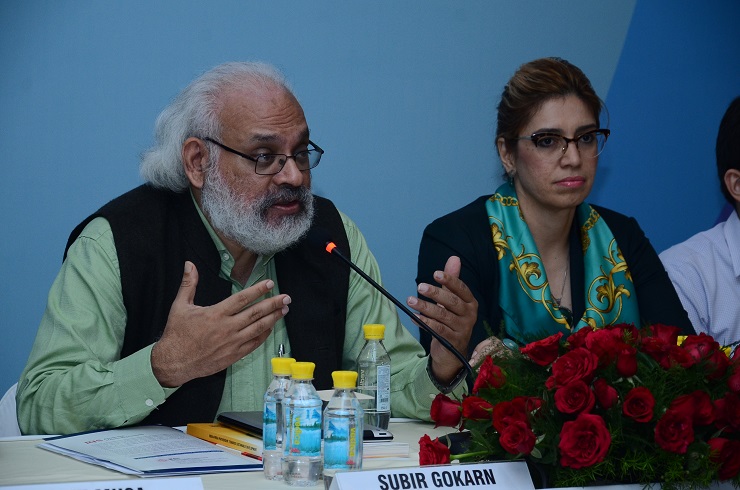
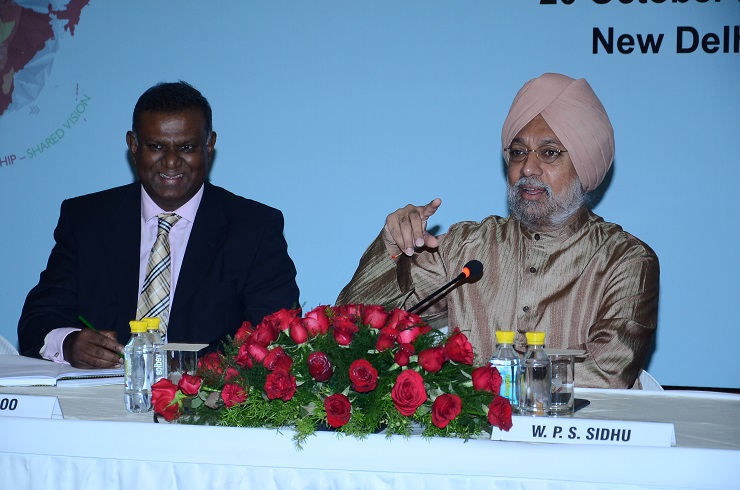

Rahul Tongia, Anurag Sehgal, Puneet Kamboj
2020
Online Only
3:00 am - 4:40 am IST

Saneet Chakradeo
August 18, 2020